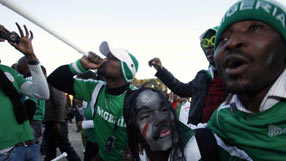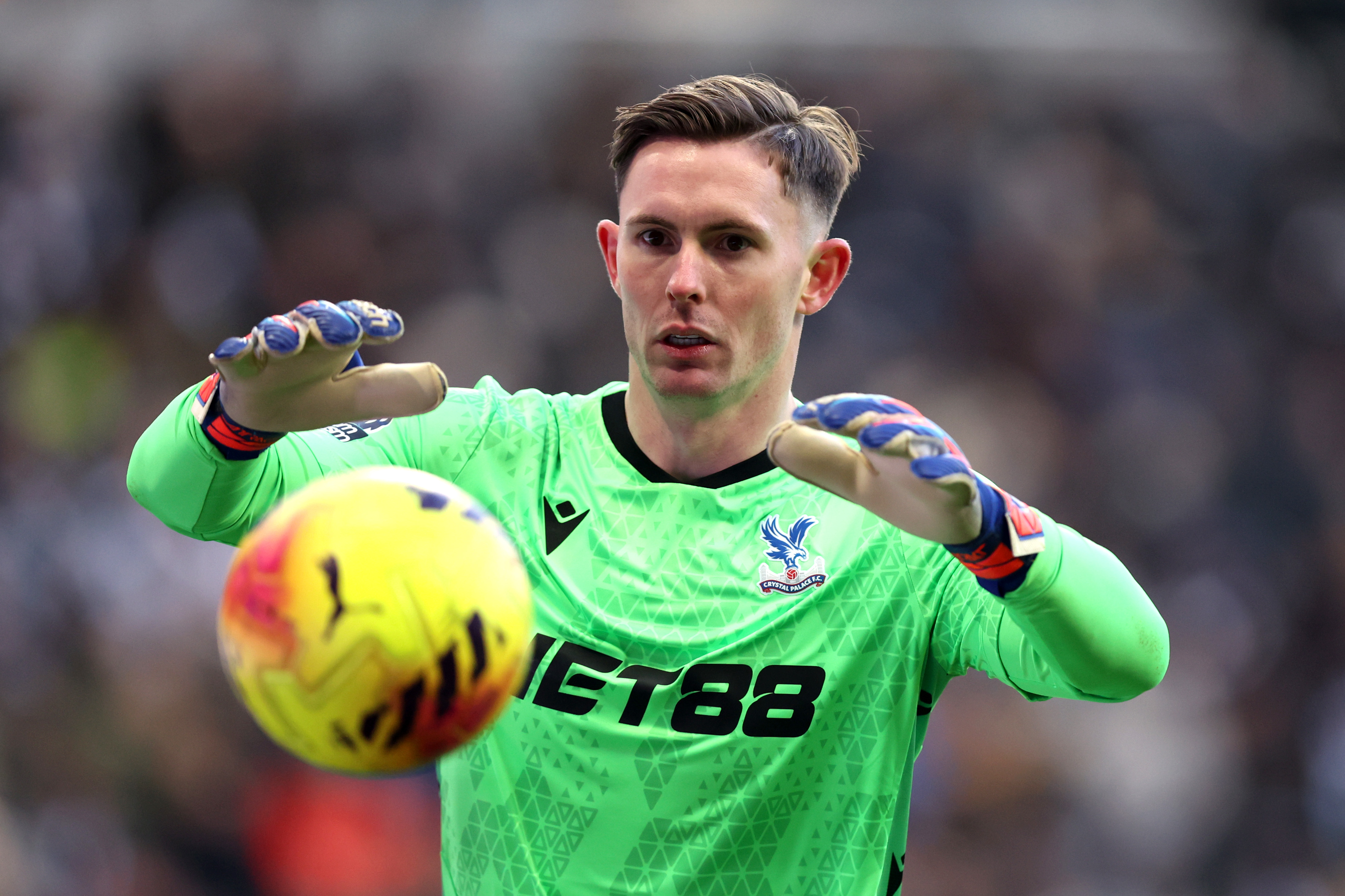
President Goodluck Jonathan on Wednesday disbanded the national team, who were knocked out in the first round after failing to win a match in South Africa, suspended the football federation and withdrew Nigeria from international competitions for two years to allow for a rebuilding process.
"It is a good thing that the government came out to intervene in football," said Benjamin Chidebere, a civil servant in the commercial capital Lagos.
"Football unites all Nigerians. If you a Yoruba man, a Hausa man, an Ibo man, football makes us drink together," he added, referring to some of the country's more than 250 ethnic groups.
The government instruction to withdraw could prompt sanctions from FIFA, which has taken a strong stand against political interference in the sport.
Some in Africa's most populous nation, where five decades of oil production have enriched an elite while the majority live on $2 or less a day, said football was not the only area where Nigeria needed to tear down everything and start again.
"There's a bigger issue underlying this. Nigeria should go back to the basics in everything, like the kind of schools we build. There's a general laxity about everything," said 54-year-old musician Duro Ikujenyo.
Nigeria's lower house of parliament took a different view, however. It passed a motion urging Jonathan to rescind the ban and instead allow a parliamentary committee to investigate the problem behind the poor performance of the Super Eagles.
The best features, fun and footballing quizzes, straight to your inbox every week.
"This is the most stupid directive I've heard," said one team fan, pointing out it could lead to an even longer ban as happened under former military ruler Sani Abacha.
Nigeria were banned by the Confederation of African Football (CAF) in 1996 when Abacha withdrew the team from the African Nations Cup finals because he had been criticised by Nelson Mandela over the judicial execution of political opponents.
They could not compete in African competition for two years but were able to qualify for the 1998 World Cup in France.
ENDEMIC CORRUPTION
Newspaper editorials and fans attributed part of the team's failure to endemic corruption.
"It is good that the aged and tired team has been disbanded," the Punch newspaper said in an editorial.
"But the government should immediately go further to fight the monsters of greed and graft in the football administration which are at the heart of the poor performance at global competitions," it added.
Jonathan has ordered the accounts of the country's World Cup organising committee to be audited and any officials found responsible of wrongdoing to be punished.
A presidency source said the government earmarked more than 2.5 billion naira ($17 million) for the World Cup organisers, soccer team members and coach.
FIFA spokesman Nicolas Maingot said football's world governing body had been informed about the withdrawal.
"It's very early to say (if they could face some kind of
